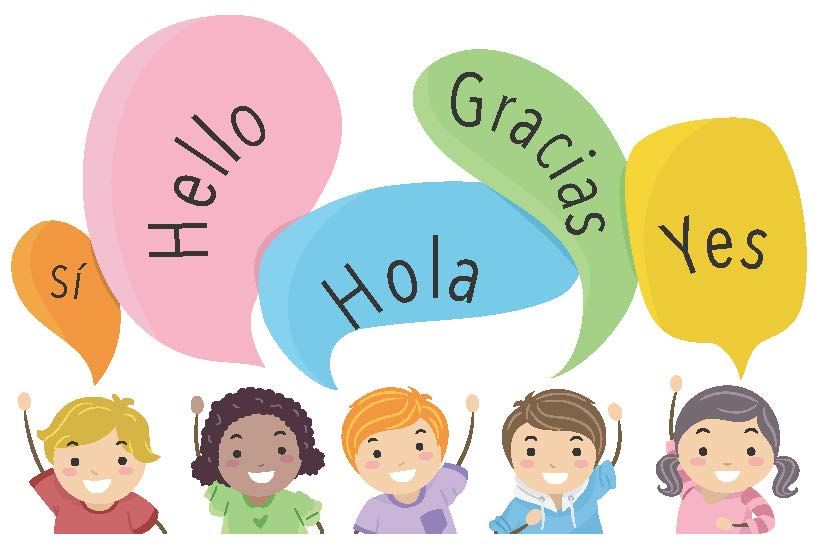Hey there, language lovers and curious minds! Today, I want to chat about something that’s super close to my heart: bilingualism. You know, being able to speak more than one language isn’t just a neat party trick; it’s like having a superpower in our increasingly interconnected world. So, let’s dive into why being bilingual is such a game-changer and how it can open up a whole new world of opportunities.
The Magic of Communication
Let’s kick things off by talking about communication. I remember when I first started learning Spanish back in high school. At first, it felt like a mountain to climb—vocabulary lists, verb conjugations, and all that jazz. But as I started to get the hang of it, something amazing happened. I could actually communicate with people from different backgrounds! It was like flipping a switch. Suddenly, I could share jokes, stories, and even my favorite recipes with friends who spoke Spanish.
Being bilingual allows you to connect with others on a deeper level. It’s not just about words; it’s about culture, emotions, and shared experiences. I’ve had countless moments where speaking a second language opened doors—like when I traveled to Mexico and could chat with locals about their traditions. Those conversations were way more enriching than just pointing at a menu or using Google Translate!
Cognitive Benefits: Flexing Your Brain
Now, let’s talk about the brain benefits. Did you know that being bilingual can actually boost your cognitive abilities? It’s true! Research shows that bilingual individuals often have better problem-solving skills, enhanced creativity, and improved multitasking abilities. I mean, who wouldn’t want a brain that’s sharper than a tack?
When I was juggling learning languages and studying for exams, I noticed how switching between languages made me more adaptable. It’s like a mental workout. I’d find myself thinking faster and coming up with creative solutions to problems. Plus, studies suggest that bilingualism can delay the onset of cognitive decline as we age. Talk about a win-win!
Career Advantages: Standing Out in the Job Market
Let’s get real for a moment—being bilingual Acan seriously boost your career prospects knowledge. In today’s globalized economy, companies are constantly on the lookout for employees who can communicate with diverse clients and partners. I’ve seen this firsthand in my own career journey. When I applied for jobs, my ability to speak Spanish set me apart from other candidates. It was like having a secret weapon in my back pocket.
Employers value bilingual employees because they can help bridge cultural gaps and enhance customer relations. Whether you’re in marketing, healthcare, or education, being bilingual opens up a whole new realm of opportunities. I’ve had colleagues who landed amazing roles simply because they could speak a second language. It’s a skill that’s in high demand, and it shows no signs of slowing down.
Cultural Appreciation: A Broader Perspective
One of the coolest things about being bilingual is the cultural appreciation that comes with it. Language isn’t just a means of communication; it’s a window into another world. Every time I learned a new phrase or idiom in Spanish, I also discovered more about the culture behind it. For example, the phrase “más vale tarde que nunca” (better late than never) reflects a laid-back attitude that I found refreshing.
By immersing yourself in another language, you gain insights into different traditions, values, and ways of thinking. I’ve found that this cultural understanding has made me more empathetic and open-minded. It’s like traveling without leaving your home! Each language you learn is a new lens through which to view the world, and that’s a powerful thing.
Overcoming Challenges: The Journey of Learning
Of course, the road to bilingualism isn’t always smooth sailing. I’ve faced my fair share of challenges along the way. There were times when I stumbled over words, got embarrassed, or felt discouraged. I remember one particular instance when I tried to order food in Spanish at a restaurant, and I completely butchered the pronunciation. The waiter looked at me like I was speaking Martian! But you know what? I laughed it off and tried again.
Embracing mistakes is part of the journey. It’s how we learn and grow. I’ve learned that persistence is key. The more you practice, the more confident you become. So, don’t be afraid to make mistakes—each one is a stepping stone toward fluency.
Tips for Becoming Bilingual
If you’re thinking about diving into the world of bilingualism, here are some tips that worked for me:
- Immerse Yourself: Surround yourself with the language. Watch movies, listen to music, or read books in your target language. It helps you pick up phrases naturally.
- Practice Speaking: Find conversation partners or language exchange groups. Speaking with others is one of the best ways to build confidence.
- Set Realistic Goals: Don’t overwhelm yourself. Start with small, achievable goals, like learning a few new words each week.
- Use Language Apps: There are tons of apps out there that make learning fun and interactive. Duolingo and Babbel are great places to start.
- Be Patient: Language learning takes time. Celebrate your progress, no matter how small.
Conclusion: Embrace Your Superpower
In conclusion, being bilingual is truly a superpower in the 21st century. It enhances communication, boosts cognitive abilities, opens up career opportunities, and fosters cultural appreciation. While the journey may have its challenges, the rewards are well worth it.
So, whether you’re just starting out or looking to brush up on your skills, embrace the adventure of bilingualism. It’s a journey that can transform your life in ways you never imagined. Happy learning, amigos!
Read Also About Student exchange programs offer an incredible opportunity for students to experience life in another country, immerse themselves in a new culture, and gain a broader perspective on the world.


